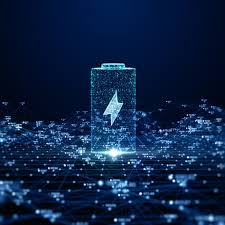
Breaking News
 MAGA Billionaires Win Battle to Buy CNN and Turn It Trumpy
MAGA Billionaires Win Battle to Buy CNN and Turn It Trumpy
 JUST IN: Three women arrested in Alabama for allegedly filling out and submitting dozens...
JUST IN: Three women arrested in Alabama for allegedly filling out and submitting dozens...
 A Major Mortgage firm Just COLLAPSED (just like what happened in 2008)
A Major Mortgage firm Just COLLAPSED (just like what happened in 2008)
 As someone who grew up in a home with domestic abuse, not only would I not have flown...
As someone who grew up in a home with domestic abuse, not only would I not have flown...
Top Tech News
 US particle accelerators turn nuclear waste into electricity, cut radioactive life by 99.7%
US particle accelerators turn nuclear waste into electricity, cut radioactive life by 99.7%
 Blast Them: A Rutgers Scientist Uses Lasers to Kill Weeds
Blast Them: A Rutgers Scientist Uses Lasers to Kill Weeds
 H100 GPUs that cost $40,000 new are now selling for around $6,000 on eBay, an 85% drop.
H100 GPUs that cost $40,000 new are now selling for around $6,000 on eBay, an 85% drop.
 We finally know exactly why spider silk is stronger than steel.
We finally know exactly why spider silk is stronger than steel.
 She ran out of options at 12. Then her own cells came back to save her.
She ran out of options at 12. Then her own cells came back to save her.
 A cardiovascular revolution is silently unfolding in cardiac intervention labs.
A cardiovascular revolution is silently unfolding in cardiac intervention labs.
 DARPA chooses two to develop insect-size robots for complex jobs like disaster relief...
DARPA chooses two to develop insect-size robots for complex jobs like disaster relief...
 Multimaterial 3D printer builds fully functional electric motor from scratch in hours
Multimaterial 3D printer builds fully functional electric motor from scratch in hours
 WindRunner: The largest cargo aircraft ever to be built, capable of carrying six Chinooks
WindRunner: The largest cargo aircraft ever to be built, capable of carrying six Chinooks
Chinese scientists create 'water battery' that can hold much more energy than lithium cells:

Interestingly, the researchers say that these new batteries will be twice as energy-dense as traditional lithium-ion options. This holds the potential to revolutionize the electric vehicle industry.
Moreover, aqueous batteries use water as the solvent for electrolytes, enhancing their safety. Traditional non-aqueous lithium-ion batteries have a high energy density, but their safety is compromised due to the flammable organic electrolytes, a component that allows the battery to charge and discharge, they utilize.
Lower energy density
However, aqueous batteries generally have a lower energy density due to the limited solubility of the electrolyte and low battery voltage.

 RNA Crop Spray: Should We Be Worried?
RNA Crop Spray: Should We Be Worried?

